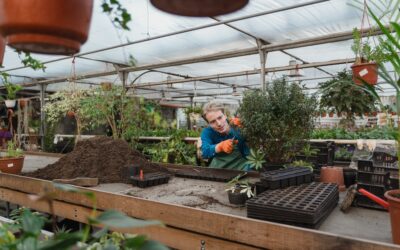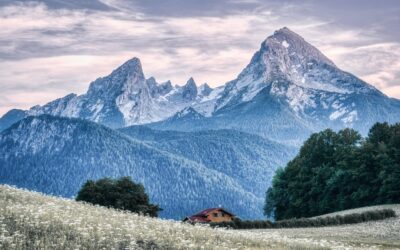Our agricultural industry and large farms have a huge carbon footprint on our world. They use up a lot of water, electricity, and even chemicals in food production. Their impact is also felt with how far and wide they have to transport and distribute the food, which all adds to the pollution agriculture causes. All of this is leading to the popularity of eco-friendly gardens.
Eco-friendly gardens are rising in popularity among professional and beginner gardeners alike. People are continuously looking for ways to reduce their carbon footprint and live a more sustainable life, and eco-friendly gardens are becoming a huge part of this movement.
An eco-friendly garden is a garden that has a low-to-zero carbon footprint and a garden that minimizes waste, and practices sustainability. There are so many ways and options for creating an eco-friendly garden.
Choose Native Plants
It would be best if you planted trees that are native to your area. By native to your area, we mean plants that occur naturally where you live. These native plants help bring in more pollinators which help expand and sustain the environment. Native plants also allow native insects and wildlife to thrive.
This doesn’t mean you shouldn’t plant non-native plants at all but incorporating a few natives will be better for your garden and the environment. Completely getting rid of the native plants in your area will cause the natural wildlife and insect environment to die off. Some non-native plants could also be harmful to the wildlife and insects in your area.
Ease On The Chemicals
Gardens have pests but using excessive chemicals to get rid of them usually causes more harm than good. Before using pesticides and herbicides, you should first try getting rid of pests and other destructive insects through natural, less-toxic methods. Remember, the chemicals you use in your garden eventually end up in rivers and oceans, which causes major harm to the environment.
Make Your Own Compost
Composting at home is as popular as ever in 2022. Instead of throwing away all your food and natural waste, like vegetable peelings and scraps, fruit peelings, leaves, and yard trimmings, why not use them to create your very own fertilizer at home?
Composting allows you to turn your appropriate garden and food wastes into healthy, natural, and organic fertilizers that you can use in your garden. This will be good for the environment and save you money on purchasing and transporting fertilizers.
Reduce And Reuse Water
Of course, every garden requires watering. But this does not mean you can’t reduce and reuse the water you use. First off, you should plant according to your environment. If you live in a dry area, plant native plants that naturally require less water, and if you live in a wet area, consider planting more water-tolerant plants.
Also, avoid wasting any water. If you use sprinklers, add timers to them. Maybe switch out your sprinkler system for a better environmentally friendly option like a drip irrigation system. You should also invest in a water butt to save and collect rainwater you can use later on.
Let Your Lawn Grow
Letting your lawn grow is a great way to make your garden eco-friendly. Letting the grass and a few wild plants grow will attract natural pollinators and wildlife. You will also see native plants growing on your lawn if you let them grow out during the summers. Letting your lawn grow out means using up less water, not wasting resources trying to mow your lawn, and letting the wildlife thrive.






